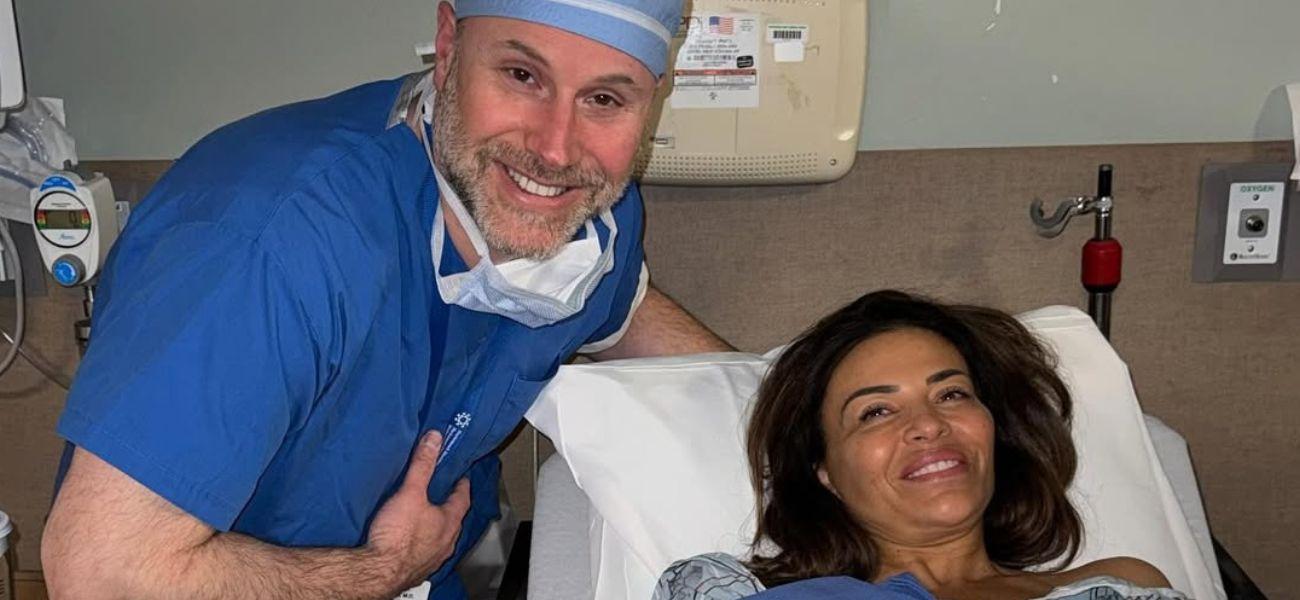'RHONJ’ Star Dolores Catania Speaks Out After Health Emergency Leads To Surgery: 'I'm Too Young To Have This'
By Kelly Coffey-Behrens on June 22, 2025 at 12:30 PM EDT

"Real Housewives of New Jersey" star Dolores Catania is opening up about a frightening health scare that led to a secret heart surgery, and she’s urging women everywhere to take their heart health seriously.
In an emotional Instagram post over the weekend, the 54-year-old reality star revealed she was recently diagnosed with atrial fibrillation (AFib), a type of irregular heartbeat that can significantly increase the risk of stroke or heart attack.
Dolores Catania, who has kept the condition private until now, shared video footage of her boyfriend, Paulie Connell, driving her to the hospital last month for a cardiac ablation, a procedure that destroys small areas of heart tissue responsible for the irregular rhythm.
Dolores Catania Faces AFib Surgery With A Smile

“We are going to get my procedure done,” she told fans in the clip, adding with a smile, “It’s a cardiac ablation for my AFib. I know, I’m too young to have this.”
As they approached the hospital entrance, Connell asked if she had any last words. “Love you,” she sweetly replied.
The "Real Housewives of New Jersey" star also shared post-op photos from her hospital bed, including a snap with her electrophysiologist, whom she jokingly dubbed her “other electrician.”
Opening Up About Terrifying Heart Scare
View this post on Instagram
But behind the lighthearted moments was a very real and very serious health journey.
“About six months ago, I was driving when I suddenly felt a sharp pain in my chest that radiated down my arm,” she wrote in her caption. “As women, we tend to ignore aches and pains, brushing them off as part of everyday life, but this felt different.”
She began experiencing chest flutters that would even wake her up at night. After finally seeking medical help, she was given a heart monitor, and just hours later, her cardiologist confirmed the AFib diagnosis and referred her to a specialist.
“He told me, ‘You’re not the same girl I met two years ago when you came here with Paul,’” Catania shared, referencing Connell’s own cardiac condition, Wolff-Parkinson-White syndrome, which also required ablation.
Dolores Catania Warns Women About Heart Health

Catania’s message was loud and clear. Don’t ignore your symptoms.
“That racing or fluttering in your chest you feel doing simple tasks during the day, that’s your body trying to tell you something,” she emphasized. “AFib increases your risk of stroke or heart attack.”
Now, six weeks post-surgery, Catania says she’s feeling like herself again. “I’ll be off all medication soon, and I haven’t had any episodes since the procedure,” she said. “Please don’t wait. Your heart health is not something to take lightly.”
She ended her post with a passionate reminder. “Take care of yourself. You deserve it!!" she said, adding a red heart emoji.
What Is Cardiac Ablation? Inside the Life-Saving Procedure That Helped Catania
View this post on Instagram
Cardiac ablation is a widely used treatment for patients suffering from arrhythmias, or irregular heartbeats.
According to the Mayo Clinic, the procedure works by targeting the areas of the heart responsible for sending faulty electrical signals and either burning or freezing them to create tiny scars. These scars disrupt the problematic pathways, helping to restore a normal heart rhythm.
In most cases, cardiac ablation is performed using a minimally invasive approach. Thin, flexible tubes known as catheters are inserted through blood vessels, usually through the groin or neck, and guided into the heart. Once in place, the doctor uses either radiofrequency energy (heat) or cryoablation (cold) to neutralize the malfunctioning tissue.
What You Should Know About Cardiac Ablation

While less common, some patients may undergo surgical ablation, particularly if they're already having open-heart surgery for another condition.
Cardiac ablation is frequently recommended for individuals with atrial fibrillation (AFib), supraventricular tachycardia (SVT), or other rhythm disorders that haven't responded to medication. The procedure typically takes a few hours, and most patients are able to return home the same day or after an overnight stay, depending on their condition.
Though recovery can vary, many people experience significant improvement in their symptoms and overall heart health following ablation.